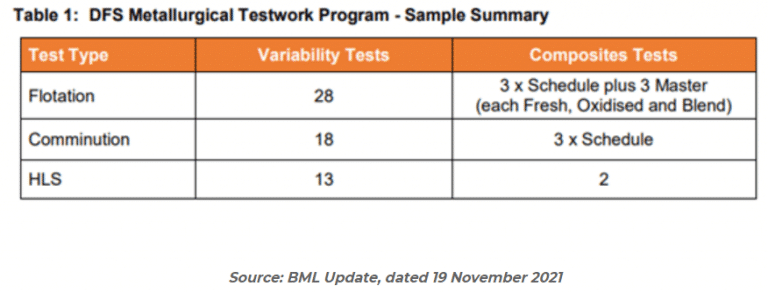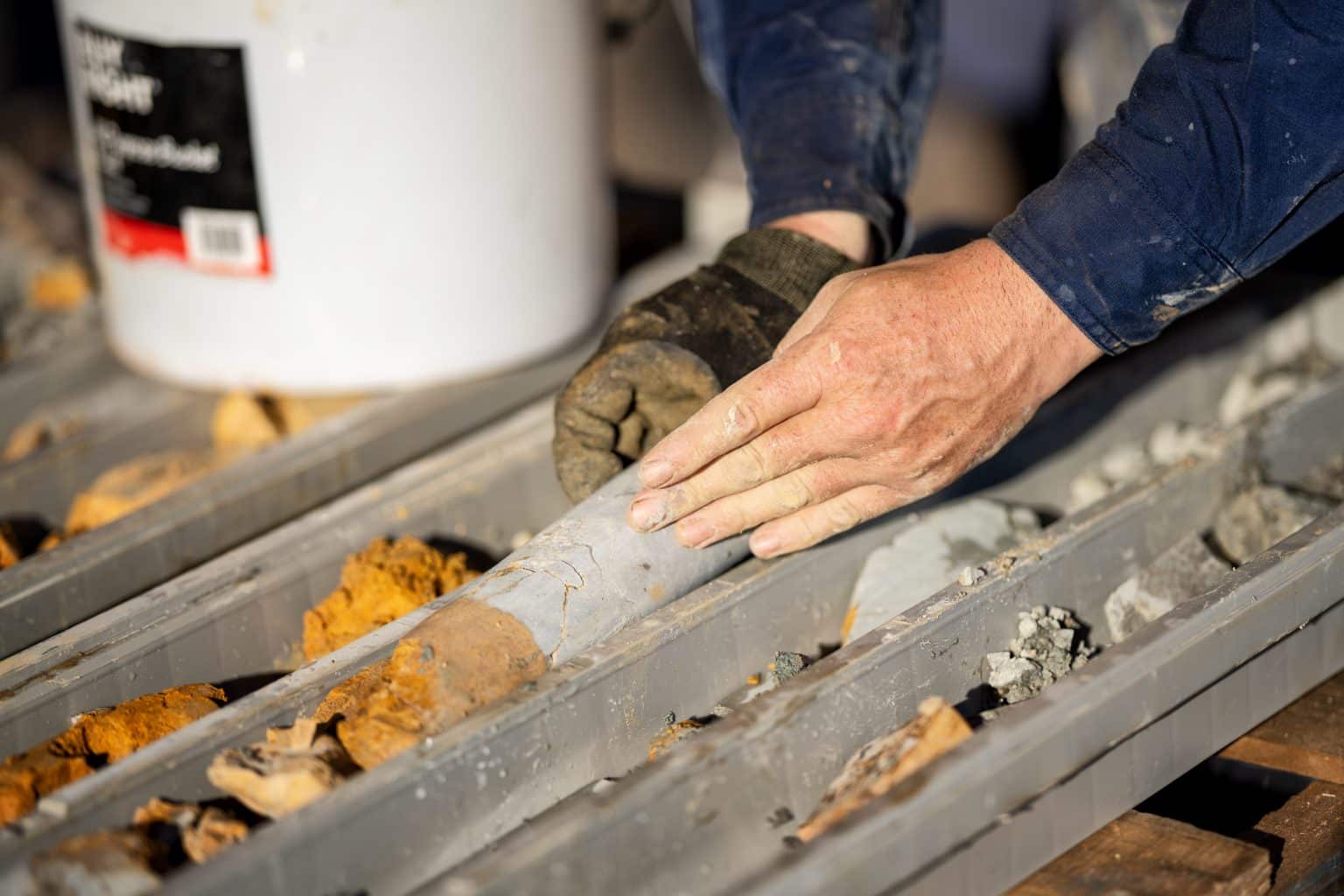Highlights
- The latest metallurgical testwork program undertaken at Boab’s Sorby Hills project has indicated a recovery uplift and is expected to have a positive impact on the project’s economics.
- The testwork used ~1,420kg of core recovered from 35 HQ diamond drill holes completed during the Phase IV and V drill program.
- The program outcomes are in line with an extensive body of metallurgical data from previous testwork phases undertaken at Sorby Hills.
- The DFS metallurgical testwork program has been largely completed and the Company is now advancing the process Plant design.
Boab Metals Limited (ASX:BML) has released results from the Sorby Hills Definitive Feasibility Study (DFS) metallurgical testwork program. The Company owns a 75% interest in the Sorby Hills lead-silver-zinc project.
As highlighted by Boab Managing Director and CEO Simon Noon, the metallurgical testwork program represents a substantive body of work, which together with extensive previous testwork results, will inform the Company’s DFS Process Plant design criteria at Sorby Hills.
Commenting on the metallurgical testwork results, Mr Noon said: “The recovery uplift resulting from separated ore versus blended ore processing is particularly encouraging, and we anticipate that adopting this approach will have a positive impact on the Project’s economics”.
As most of the DFS metallurgical testwork program has been wrapped up, the Company is rapidly advancing the design of its process plant.
DFS Metallurgical Testwork Program
On the back of a successful Phase IV drilling campaign, the latest testwork was undertaken with the objective of delivering robust outcomes to aid the design criteria of the Sorby Hills DFS Process Plant.
ALSO READ: Boab Metals (ASX:BML) reports exciting initial results at Sorby Hills
Approximately 1,420kg from 399m of half core was collected from a total of 35 HQ diamond drill holes included in the Phase IV and V drilling program. These diamond holes were located to collect information for the DFS metallurgical testwork program. Subsequently, the half core was combined and composited into variability samples, schedule composites and master composites.
Sample Selection
Around 10-year mining schedule included in the Sorby Hills Pre-Feasibility Study (PFS) comprised 83% Fresh Ore and 17% Oxidised Ore and a process design. Moreover, sequential flotation was used for metal recovery from an ore feed schedule consisting of a blend of Fresh Ore and Oxidised Ore.
The goal of the testwork program was to evaluate and compare processing Fresh Ore and Oxidised Ore using both separated and blended ore processing strategies. A total of 28 samples that exhibited a range of head grades, mineralogical compositions and source locations were prepared as Variability Samples.
ALSO READ: Boab Metals’ (ASX: BML) milestone-rich FY21 provides a springboard for growth

Flotation Testwork
Flotation results confirm recoveries of:
- Lead: up to 95%Pb (Fresh Ore) and 90%Pb (Oxidised Ore)
- Silver up to 87%Ag (Fresh Ore) and 92%Ag (Oxidised Ore)
Results reveal that the separate flotation of Oxidised and Fresh Ore will deliver a significant uplift in metal recovery across the Life of Mine versus blended ore treatment and is anticipated to have a positive impact on the project’s economics.
ALSO READ: Boab Metals (ASX:BML) poised to grow amid silver supply concerns
Concentrate Analysis
Results of a comprehensive assay on Lead-Silver Concentrate produced from each locked cycle test have again confirmed the high-quality and high-grade potential of the Lead-Silver concentrate from the Sorby Hills project.
The results have been provided to potential offtakers as part of the Company’s ongoing tender for the right to its share of the Sorby Hills Lead-Silver concentrate production.
ALSO READ: Boab Metals (ASX:BML) hosts NAIF and commercial banks on a site visit of Sorby Hills Project
BML shares traded at AU$0.350 on 22 November 2021.

